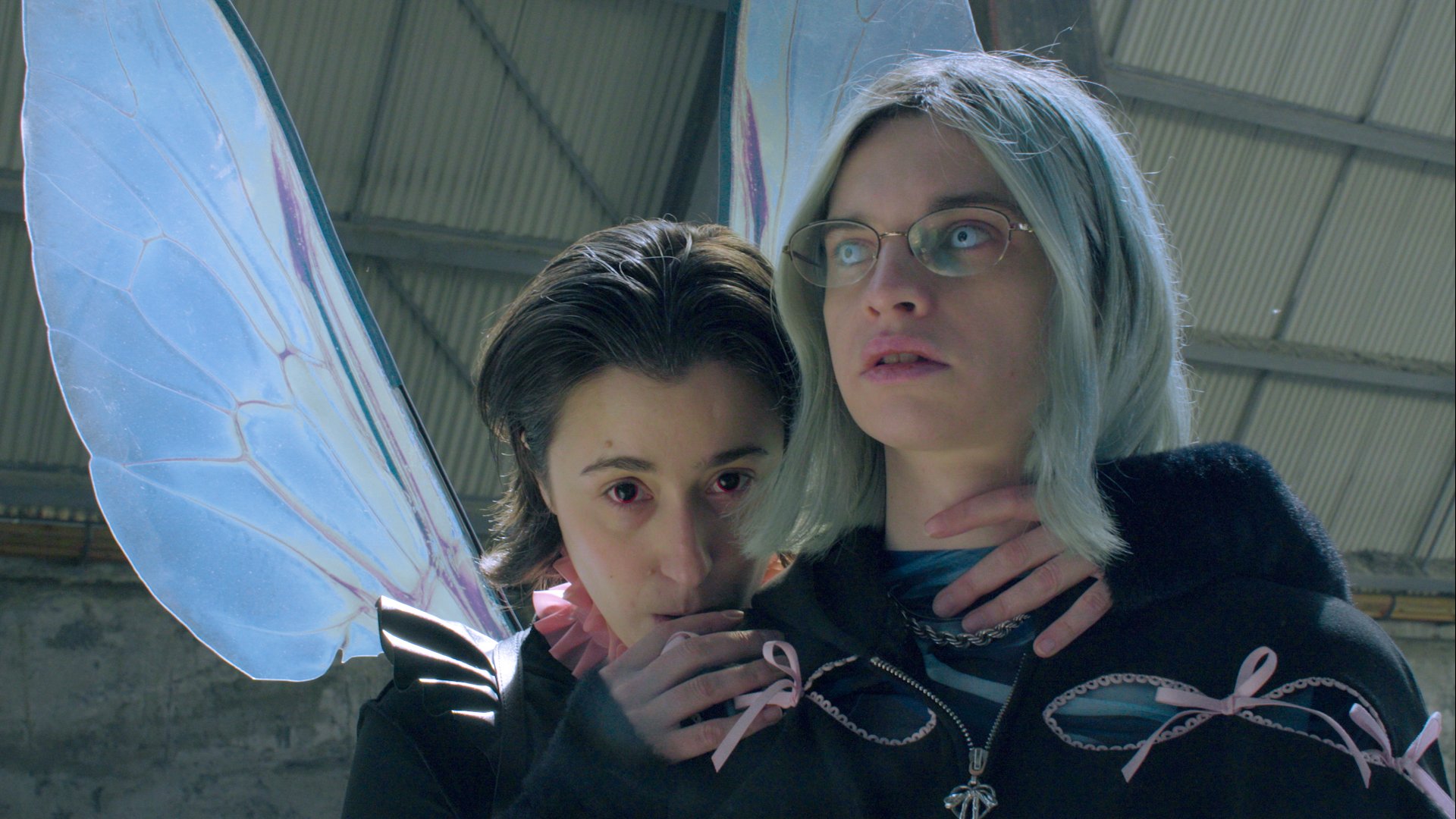Gabi Dao
B. 1991, Vancouver, Canada. Lives and works in Maastricht, Netherlands.

Gabi Dao’s work Sweet Blood in Stagnant Waters is an experimental sci-fi film imagining a family of Angels – humanoid cyborgs, in other words, inhabiting a proxy planet of Earth. The group consists of a pair of twins and an older angel who acts as a motherly figure towards the two. The twin sister is pregnant and about to give birth to Baby, who is half human and half mosquito, and while unborn, they are invisible to the other characters. In the dream-like atmosphere of the film, all of this is possible, but this unconventional family’s situation is not one they take for granted.
Their conversations reveal their struggles in trying to live a better life and adapting to this new world, not forgetting Earth and the people they have left behind. Their concern over human suffering that continues on Earth hints at a devastating past scenario. In the meantime, their future, Baby, is haunting their mother as a ghostly presence. At the centre of this all-encompassing haunting is the question: what makes a home? How can we form a family even when it feels impossible? In dystopian circumstances, for example, or when family members do not fit traditional gender roles.
The artist constructs the fictional narrative in an attempt to broaden the potential for understanding non-normative ways of creating kinship between humans and more-than-humans, drawing on both science fiction and the life cycle of a mosquito, an animal as misunderstood as it is hated. Gabi Dao’s practice is an ongoing process of re-enchantment and remediation of meaning, time, labour and relations to ecology in the ruins of colonialism and capitalism, and at the core of this is the ability to imagine worlds that exist otherwise. They are guided by lineages of anti-colonial, queer and feminist thought, practice and lives.
Co-produced by The Vega Foundation and TBA21 Thyssen-Bornemisza Art Contemporary within the framework of the 36th Ljubljana Biennale of Graphic Arts. Financially supported by the Mondriaan Fund. With additional production support by Publiek Park.

